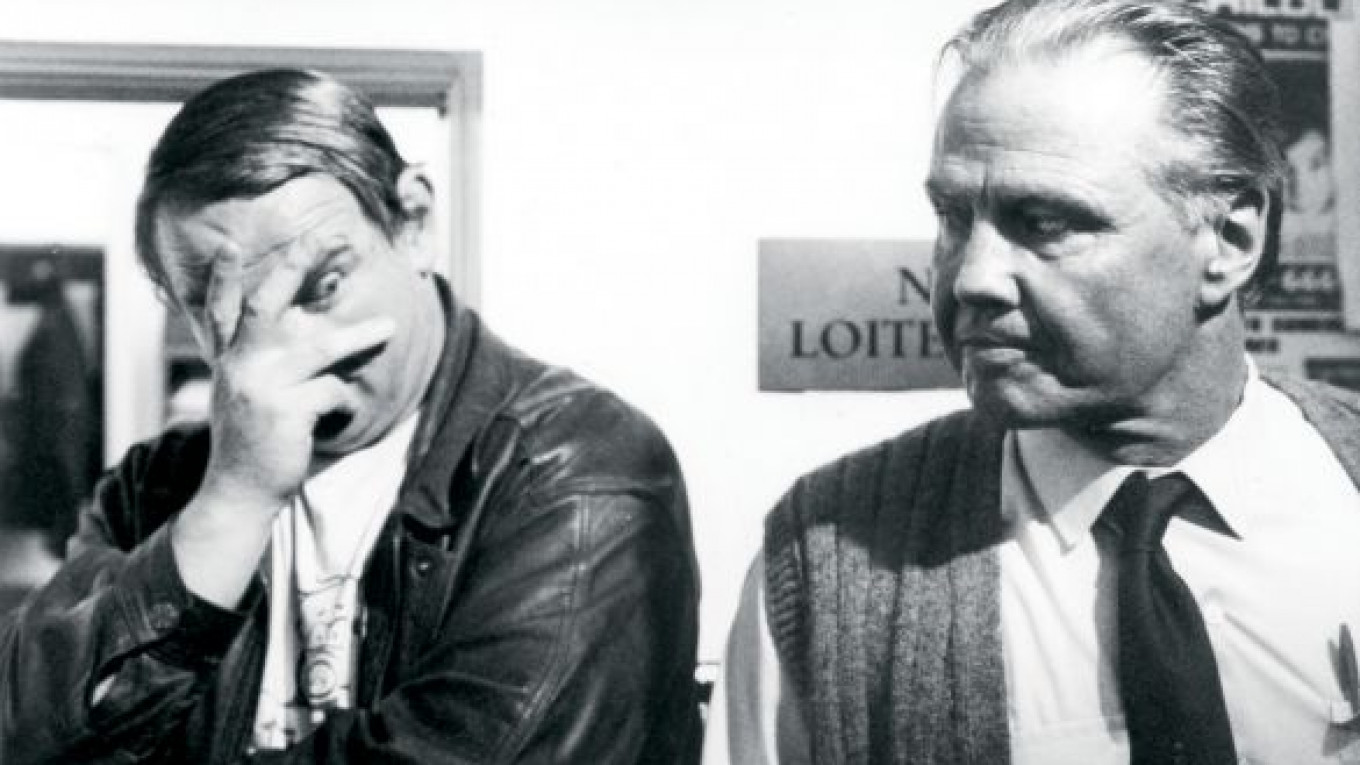ST. PETERSBURG — The tradition of celebrating St. Patrick’s Day spread far beyond Ireland’s borders long ago. Along with the United Kingdom, the United States and some provinces of Canada, St. Patrick is also honored as a national saint in Nigeria.
In Russia, the tradition of celebrating the patron saint of Ireland dates back to 1992, when the first parade took place in Moscow. The celebration usually continues in pubs, although pubs in Ireland used to close for the holiday.
This year, both Moscow and St. Petersburg are to host an Irish film festival timed to coincide with the holiday, allowing enthusiasts to expand their plans for celebration. The organizers have done their best to make the program diverse. Audiences will have the opportunity to see a comedy, a biography, a documentary, a subtle psychological drama and even a series of short films.
Lenny Abrahamson’s “Garage,” is an 85-minute tragicomic story about Josie, a 40-year-old garage worker who lives in the same place in which he works and knows of nothing outside his hometown. His life occupies a very narrow circle, but after he meets David, a 15-year-old whom Josie’s boss hires to help in the garage, the man slowly but steadily begins to emerge from his shell.
“I think you could call it maybe ‘minimal slapstick’ or ‘slapstick tragedy,’” Abrahamson says about his work. “It’s a physical film. It’s about this character who has a very strong visual kind of signature. He walks in a very particular way. He speaks in a very particular way. I think it’s this curious style that allows ‘Garage’ to be tender without being sentimental.”
The Sunday Times film critic Wendy Ide caught the author’s message in her review: “The comedian and actor Pat Shortt brings a wonderful physicality to the character of Josie, a slow, simple but essentially good man whose frame of reference doesn’t extend far beyond the rundown garage where he works. That Josie is always wearing an Australia baseball cap is poignant given that the total of his travel is between the local pub and his place of work. The film is full of lovely details like that, which build into a rich portrait of loneliness in a dying community.”
The main character of the next film was, unlike Josie, always in the spotlight. The police hated him, fans adored him, the IRA and UVF were interested in his persona, but the legendary Irish thief and crime boss Martin Cahill — aka “General” — lived according to his own laws. Coming from a poor Dublin suburb, Cahill began his career by stealing cream puffs for his family and wife-to-be, who was then just ten years old. During the next 20 years, he stole jewelry and works of art in total worth more than $60 million.
Despite being followed 24 hours a day, Cahill was never proven guilty. The Irish Robin Hood of the 20th century, he was always harshly critical of state politics and gave money to the poor, saying that he was “paying tax” in this way. Cahill was true to his convictions, whether right or wrong, until the very end. And viewers are inclined to support him rather than the police officers throwing sticks at him and making jokes about his pregnant sister-in-law. Director John Boorman wants his audience to believe that Cahill was a noble thief, and his portrayal is convincing, ensuring that many viewers will empathize with Cahill, one of the luckiest, most resourceful and successful thieves in history.
The theme of loneliness reappears as Maya Derrington explores the topic of teenage alienation in her semi-
documentary film “Pyjama Girls.” The film focuses on the lives of two friends, Lauren and Tara, who hang around Dublin streets in their pajamas.
“I was inspired to make the film because of my own surprise and fascination with the daytime pajama phenomenon,” Derrington said.
“There were two things in my mind as I began: One was the bright softness of the pajamas as a metaphor for female teenage life, and against that, the harsh lines of the flats. I was really struck by the architecture of the area which combined brutality and community.” Lauren and Tara seem like aliens left on their own in a concrete jungle, desperately trying to find something to do. Following them gently with the camera, the director creates the impression that the audience is also walking around Dublin, maybe even wearing pajamas.
John Carney’s comedy “Zonad” is about a real alien who changes the life of an Irish town overnight.
“Our belief during the writing and making of ‘Zonad’ was that if we stuck to what we found funny ourselves, there would be enough people out there who would respond to it,” Carney said. “With comedy, you’ve got to please yourself and hope that there’ll be a few others out there who’ll get it.”
The Irish Film Festival runs till March 27 at Formula Kino Gorizont. 21/10 Komsomolsky Prospekt. Metro Frunzenskaya. Tel. 795-3795.
A Message from The Moscow Times:
Dear readers,
We are facing unprecedented challenges. Russia's Prosecutor General's Office has designated The Moscow Times as an "undesirable" organization, criminalizing our work and putting our staff at risk of prosecution. This follows our earlier unjust labeling as a "foreign agent."
These actions are direct attempts to silence independent journalism in Russia. The authorities claim our work "discredits the decisions of the Russian leadership." We see things differently: we strive to provide accurate, unbiased reporting on Russia.
We, the journalists of The Moscow Times, refuse to be silenced. But to continue our work, we need your help.
Your support, no matter how small, makes a world of difference. If you can, please support us monthly starting from just $2. It's quick to set up, and every contribution makes a significant impact.
By supporting The Moscow Times, you're defending open, independent journalism in the face of repression. Thank you for standing with us.
Remind me later.






